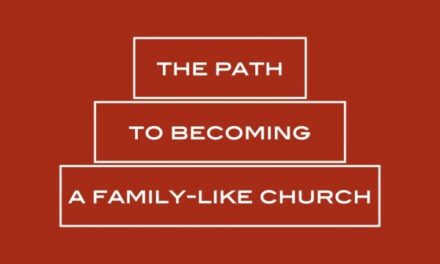By Jack Wilkie
Lest the title be misunderstood, it’s important to define our terms before we begin. Of course, when I say that there is a problem with book-chapter-verse studies, I don’t mean simply using Bible verses. What I mean by book/chapter/verse (or b/c/v) is study or preaching that jumps from verse to verse to verse throughout the Bible. For example, it’s been said of some preachers that they couldn’t get through a sermon without referencing at least 100 scriptures.
While I agree that there is certainly a place for topical studies where we follow an idea through the Bible, and every Christian will engage in topical studies and every preacher will preach topical sermons at some point, I believe the over-usage of them has resulted in weakened Christians.
Here are three reasons why, followed by an alternative suggestion.
It doesn’t stick.
While many think that the Bible hasn’t been properly proclaimed if a sermon doesn’t use dozens of Scriptures, the fact of the matter is that such lessons leave the listener with a knowledge of what the preacher had to say rather than what the verses themselves have to say. When the Bible is used in that manner, there comes a point where it’s simply not possible to turn to all of the Scriptures referenced. In some cases they come so fast that it’s not even possible to write them all down.
We only have the ability to remember so much of what we hear, and when verses come at us that fast it won’t be them that we remember, but what the preacher or teacher had to say about them. If instead the Bible is opened to one or two sections during a sermon and each is examined in depth, it will be far easier for the listener to remember and they will walk away with a better knowledge of the Bible.
It puts context at risk.
Frankly, it’s much easier for wrong ideas to be picked up when a verse is removed from its context. Just look at Jeremiah 29:11, where God’s plans for Babylonian captivity are often mistaken for His plans to bless our lives, or Matthew 18:20, where a gathering of those administering church discipline is often misconstrued as private worship. For a couple of more dangerous examples, consider verses like Ephesians 2:8-9 or Romans 10:9-10. They are good, important verses, but used out of context they have led many people astray on what God requires for salvation.
Any of us can string together a number of verses to prove just about any point, but unless we know that those verses are being properly used as defined by their contexts, there’s no way of knowing that the point is correct.
It turns the Bible into a reference book.
This is the most important reason why we have to be careful with b/c/v, topical study. How we view the Bible and the way we use it is one of the most important aspects of our entire lives. Therefore, it’s important to remember that the Bible is not a reference book to be cited. Bible verses shouldn’t be referenced in the same way we reference some US law like “12 U.S.C. § 92” or “Rule 8, Section 5, Article 1” of the NFL rulebook. It’s okay to use law or rule books in that way because each of the sections (or verses, for comparison’s sake) stands on its own. The Bible, however, does not work that way.
The verses of the Bible are not a bunch of disjointed, stand-alone entries like what we find in a dictionary. We reference dictionaries, rulebooks, or legal codes to back up the points we want to make. With the Bible we have to go to it and let it make its point for itself, and we can’t do that if we simply reference verses one at a time. The Bible existed for many, many years before the current chapter and verse divisions were added. This should remind us that the verses we have now have always been intended as part of a larger narrative. When we get into the habit of proof-texting (picking individual Bible verses out of their context) we miss the narrative that each book is establishing, and ultimately the narrative of the entire Bible.
In our study we must be sure to have a balance of textual studies along with our topical studies. Concordances and cross references are valuable tools in studying the Bible that can be useful in their own ways. But it’s not their job to give context or a sense of the narrative behind each verse, so we must go beyond them in our studies. Pick a book of the Bible, read through it a few times to get the overall tone and idea, and then take it one section at a time as you understand those verses for what they mean and how they apply as part of the context of the book.
Preachers, if you don’t already, I encourage you to work toward preaching expository rather than topical sermons the majority of Sundays. It usually takes more work, but a congregation is much better off coming away with a deeper understanding of one section of Scripture and how it applies than they are hearing dozens of verses which they very quickly forget. It will also aid the listeners in their own study as they learn how to work through a passage.
If you attend a congregation where the preacher preaches the type of b/c/v sermons discussed here, please don’t complain to him about it. Each preacher has his own style and was trained in different ways. Each week just write down 4 or 5 verses that were especially emphasized as part of the topic and take some time to study each of them individually.
I don’t intend this article as a slam on any preacher. We all preach topically from time to time. I simply hope to encourage balance between studying the Bible topically and studying it verse by verse. The Bible is a deep well of countless treasures that we’ll never fully mine. Let’s make sure we’re approaching it from every angle with the proper appreciation it is due.
The Problem with Book-Chapter-Verse





